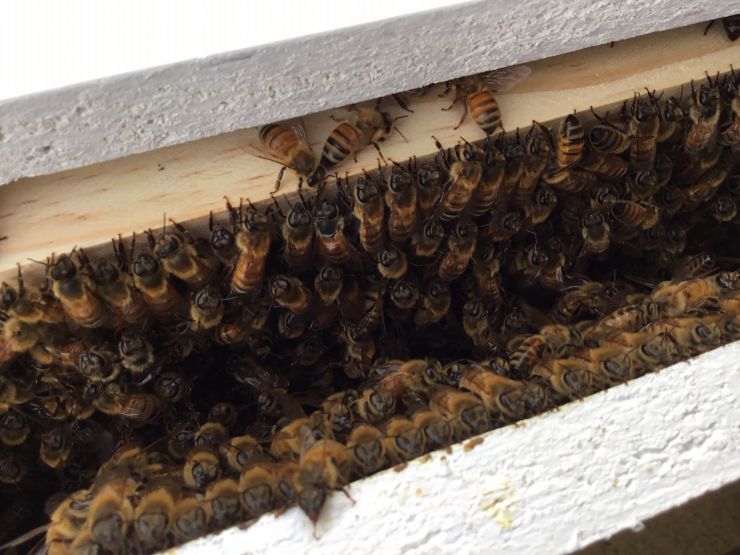Swarm of bees relocated from Perth school
22 Oct. 20193000 bees say thank you!
This swarm of 3000 bees had found their way into the grounds of a Perth school and were in need of a new home.
Luckily for them the school contacted us here at Termico Pest Management and our bee whispering technician John went out to safely retrieve the bees and provide them a new home in his apiary, where they will be well looked after!

In spring, bees start to swarm which is part of the natural life cycle of honey bee colonies. Already over the last month we have been called out to over 30 homes and schools across Perth to relocate bees that have become unwanted guests.
As bees are such an ecologically essential insect we take great care in safely relocating them. Many find homes with a few of our beekeeping technicians while others are handed over to other local apiarists across Perth.
If you encounter bees swarming close to your home, workplace, school or around the community. Do not attempt to move them on by spraying them with water or throwing things at them. Instead try not to disturb them and avoid going near them where possible. Most likely they will move on within a day or two and won’t bother you again.
However if the bees do decide to set up a more permanent residence at your home contact us for help. This will ensure the safety of people and ensure the best outcome for the bees too.
Want to find out more about swarming bees then check out our blog ‘Why do bees swarm?’





